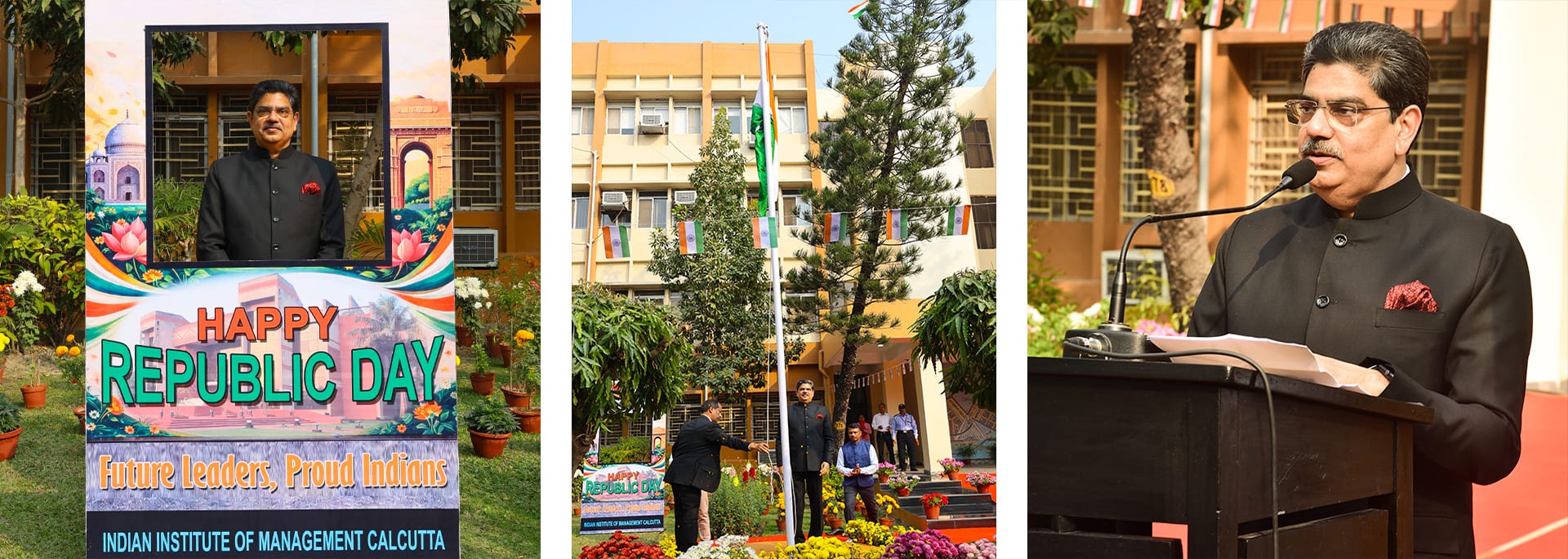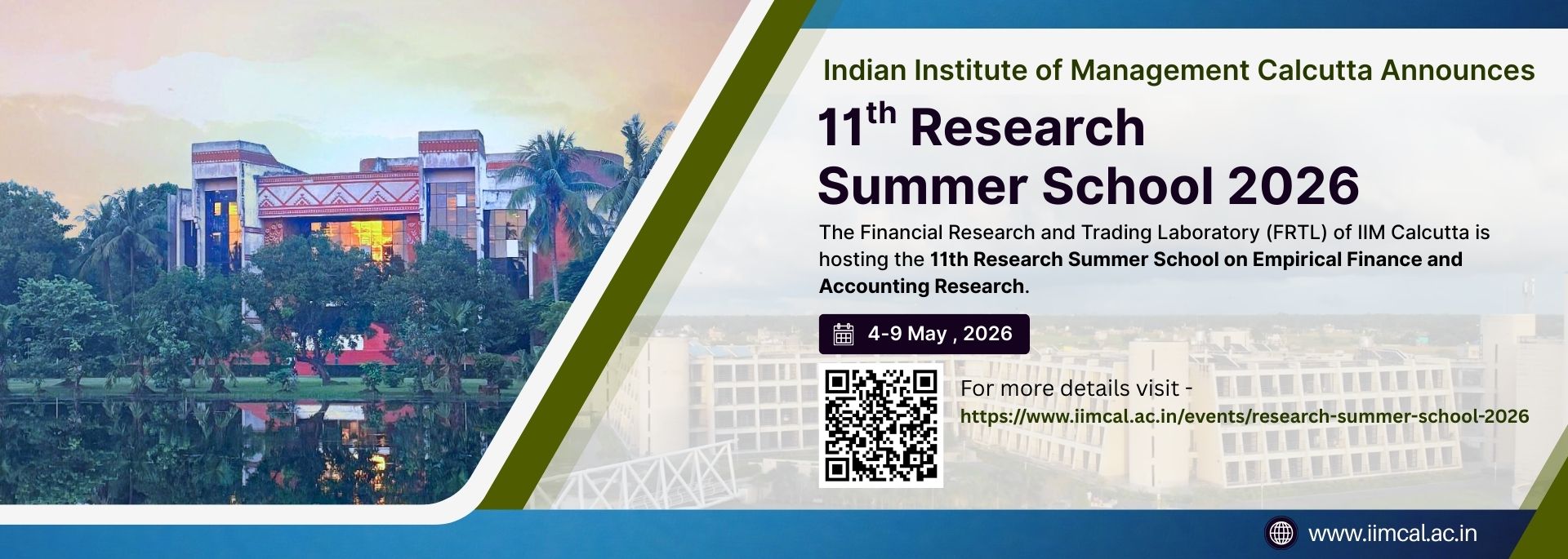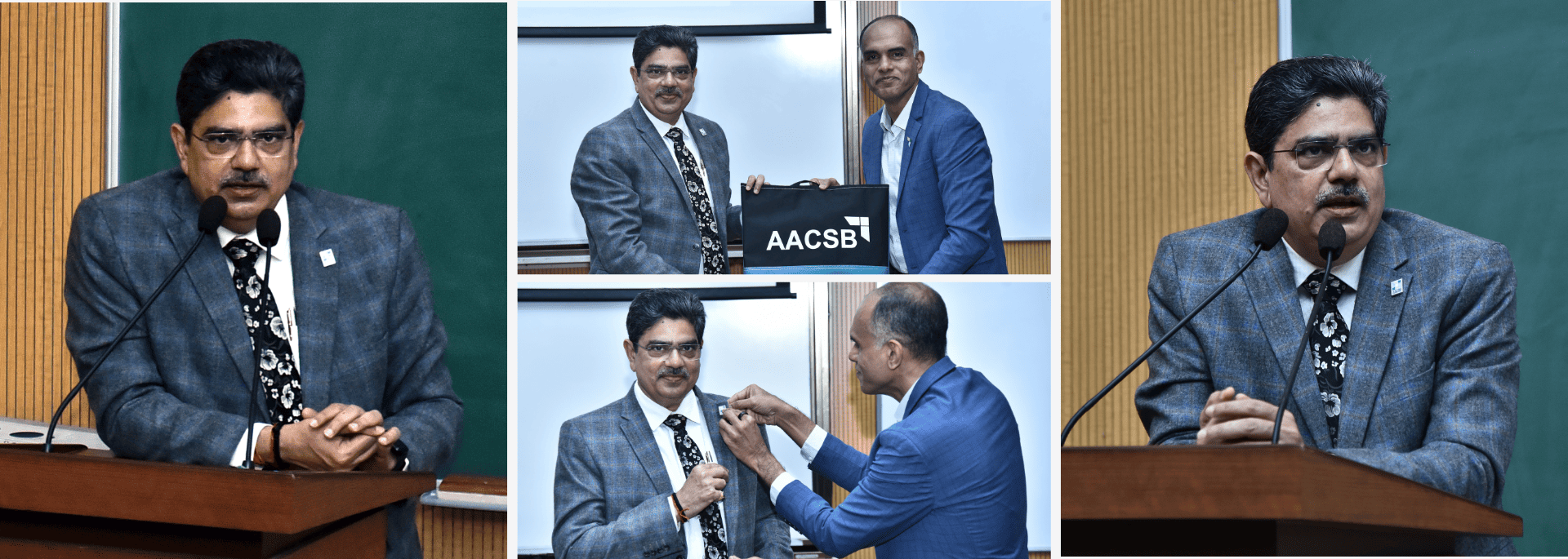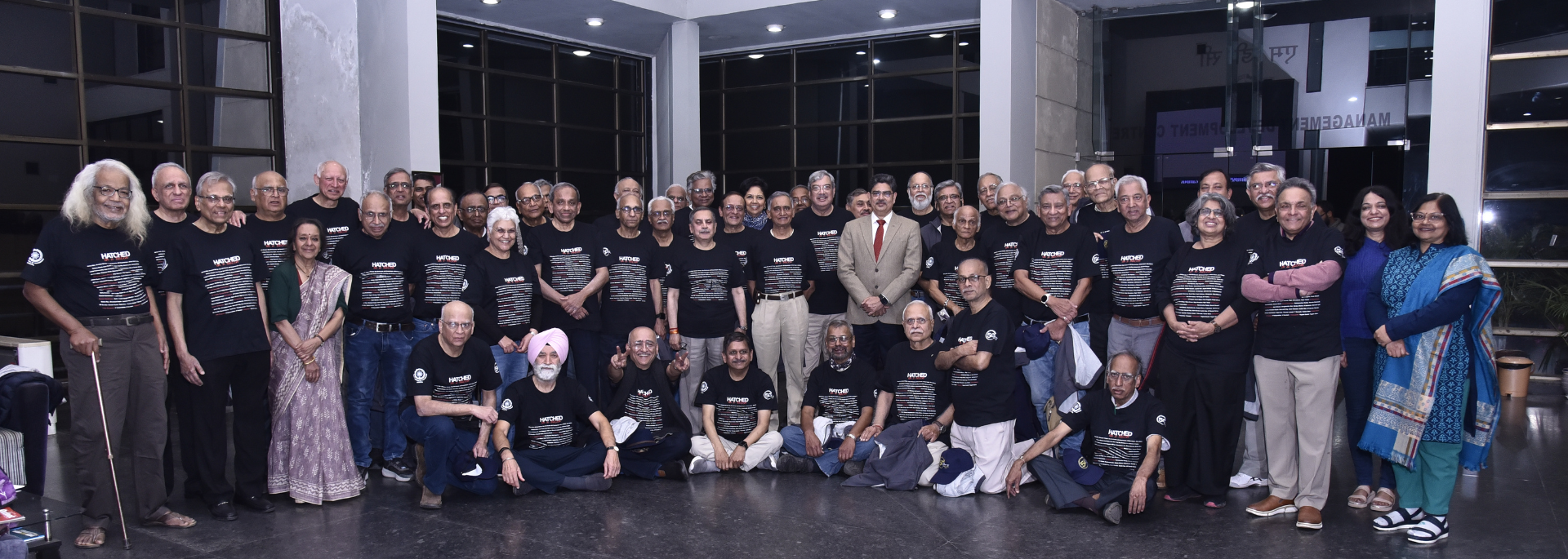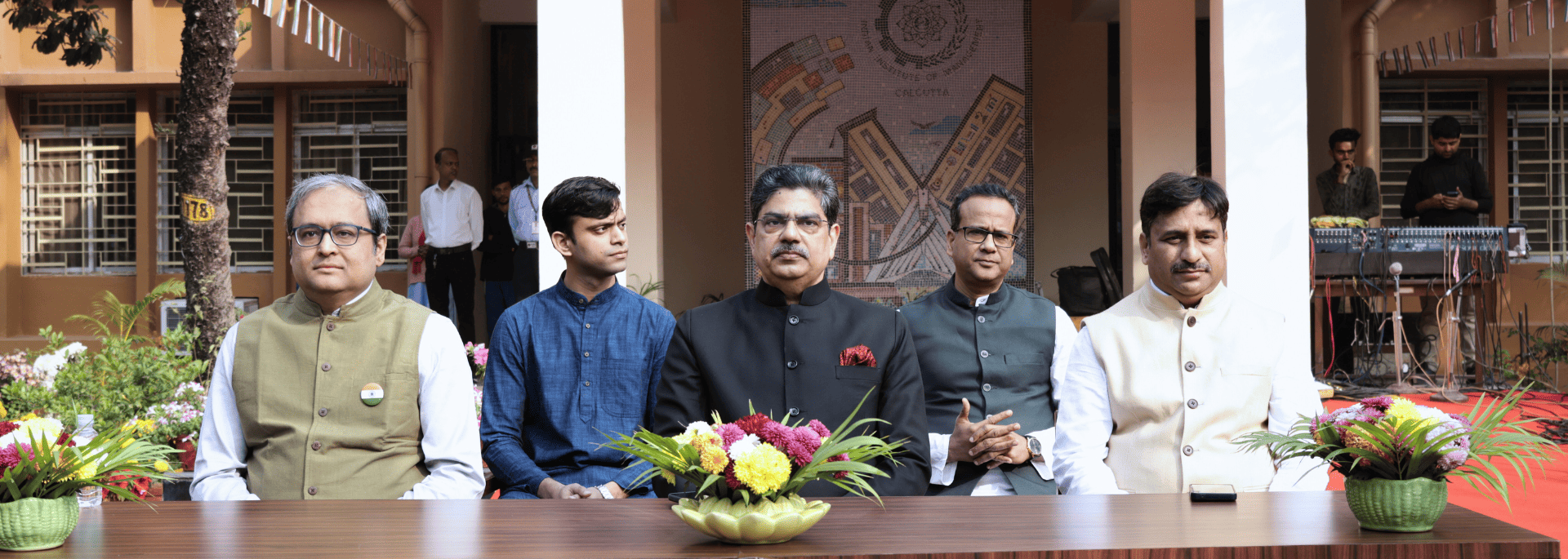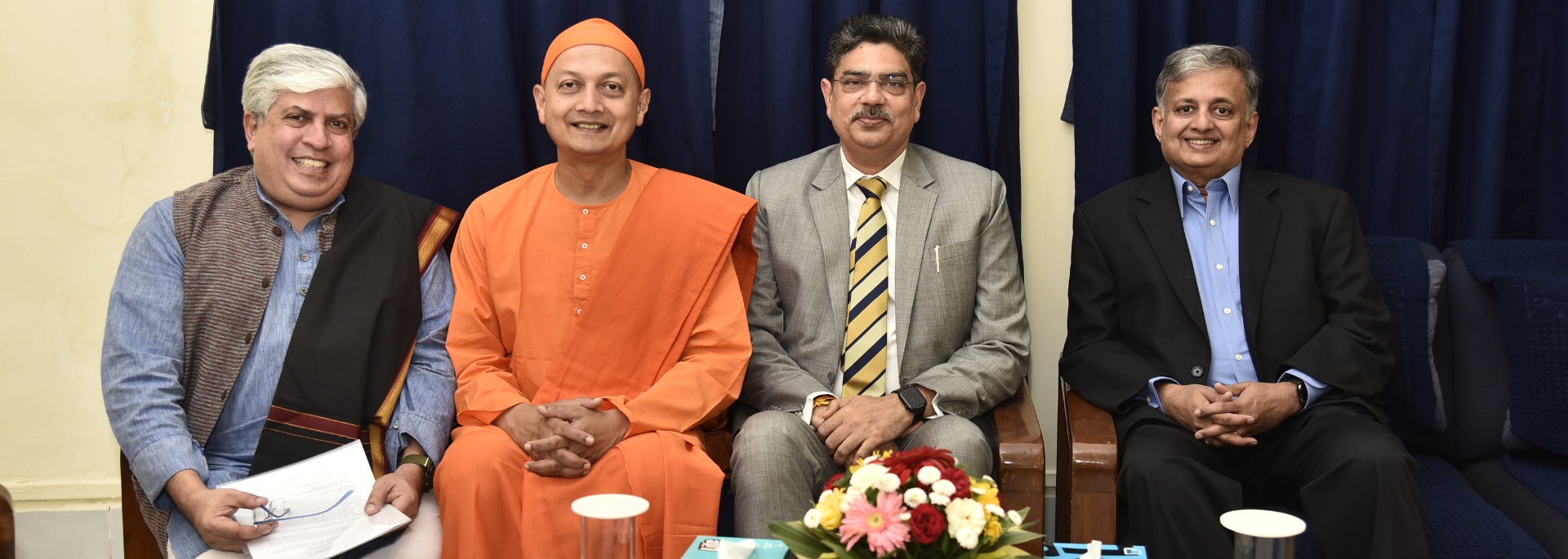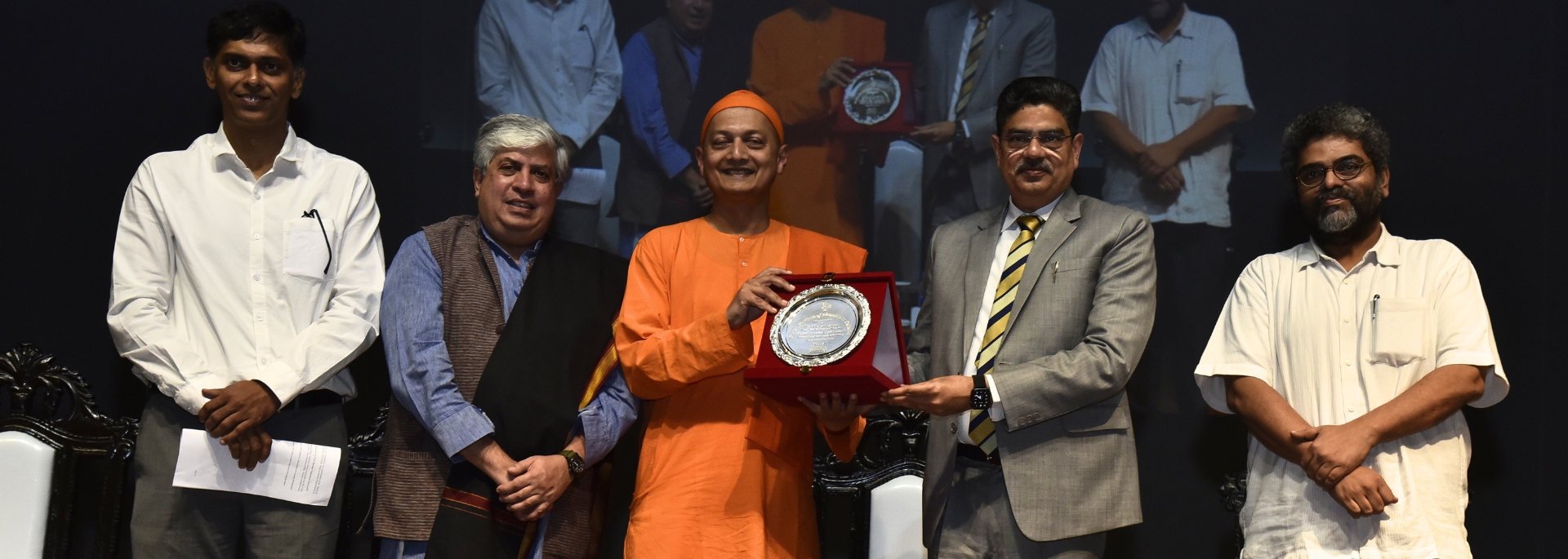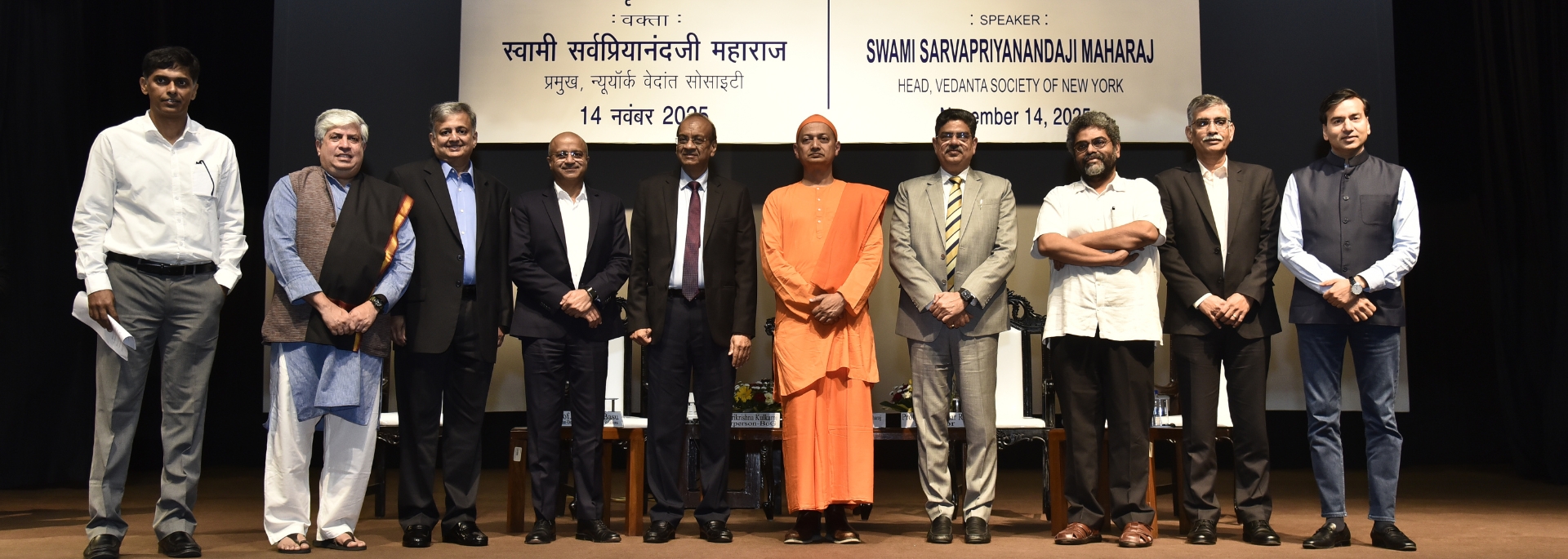| Overview | Conference Team | Invited Speakers | Conference Programme | Important Dates | Conference Registration | Accommodation | Special Issue of DECISION |
|---|
Conference jointly hosted by
DECISION, IIM Calcutta and Fact or Value



Overview
DECISION, the IIM Calcutta-Springer journal, aims to facilitate scholarly inquiry into the contexts of our concepts. In collaboration with Fact or Value, DECISION aims to continue the conversation: investigating process(es) via which some ideas, perspectives and readings of the world have come to be recognized as universal and true; in other words, a fact. Fact or Value is a forum for lectures and discussions on philosophy, aesthetics and history.
What is a fact? We often think of facts as invulnerable, objective truths, descriptions of reality that stand apart from opinion, belief, and bias. But how did we come to be so certain of all that we are certain? In a world increasingly polarized by misinformation, the fact is frequently invoked as a neutral arbiter of truth. But has it always carried this authority? As Hilary Putnam had questioned in his critique of the fact–value dichotomy, the distinction between what is and what ought to be is neither as clean nor as stable as we might wish.
This conference invites scholars to interrogate the history, politics and epistemologies of factuality with special focus on the context of South Asia. Today, we regard facts as the building blocks of ‘scientific’ knowledge, far removed from the vagaries of ideology and values, which belong to the more fluid world of the humanities, and as such are always prone to bias or prejudice. But can these disciplinary boundaries based on the inviolable status of the fact or data be challenged when re-examined in light of the constructed nature of these concepts themselves? Can historicising these ideas shed light on our understanding of the systems of knowledge production?
From the early modern skepticism toward meteorites to the objectivity heralded by statistical tables and scientific atlases, facts have evolved in tandem with changing institutions, technologies, languages, and power structures. Whether through the lexicons of colonial botany, the atlases of Enlightenment science, or the spreadsheets of modern capitalism, facts have always been mediated, translated, and constructed. As Steven Shapin, Mary Poovey, Lorraine Daston, Minakshi Menon, and others have shown, the epistemic virtues of truth, precision, and objectivity are not universal constants, but products of historical development.
The claim that we live in a post-truth world assumes that, once upon a time, we lived in a world of Truth: an era when politicians and corporations did not lie as much, when the media could be taken for its word, when fact-checking was unnecessary. But has this ever been the case? And even if the institutions of yesteryear were guardians of the truth, how did those institutions, systems and ideas come to be? How did we come to live in a world where citizens feel entitled to facts, to information, to transparency? What was the world like before facts, before data, in a world without precision–particularly non-European societies? This conference will explore these and related questions.
Possible topics include (but are not limited to):
- Ways in which facts have been defined, constructed, contested, or dismissed in the history of South Asia and Southeast Asia.
- Practices (scientific, bureaucratic, linguistic, technological) that have enabled the production and stabilization of facts on the subcontinent.
- Networks of exchange between fact and fiction, fact and myth, fact and belief both before and after the colonial encounter.
- The extension of this revolution in beliefs pertaining to facts, objectivity, neutrality of data to other areas of human activity such as law and politics.
- The status of fact and objectivity in the digital world.
Conference Team
Conference Co-Chairs:
Dr. Nandita Roy, Business Ethics and Communication Group, IIM Calcutta
Dr. Doyeeta Majumder, Department of English, Jadavpur University
Conference Advisory Committee
Abhijit Gupta, Director, Jadavpur University Press; Director, School of Cultural Texts and Records; and Professor, Department of English, Jadavpur University
Anirvan Pant, Professor, Strategic Management Group, IIM Calcutta
Devi Vijay, Professor, Organizational Behavior, IIM Calcutta
Diven Nagpal, Editor, Seagull Books; Co-founder, Fact or Value
Partha Pratim Pal, Professor, Economics Group, IIM Calcutta
Pragyan Rath, Associate Professor, Business Ethics and Communication Group, IIM Calcutta
Priya Seetharaman, Professor, Management Information Systems Group, IIM Calcutta
Rajesh Babu, Professor, Public Policy and Management Group, IIM Calcutta
Sourav Bhattacharya, Professor, Economics Group, IIM Calcutta
Subha Prasad Sanyal, Doctoral Fellow, Jadavpur University; Co-founder, Fact or Value
Sumanta Basu, Professor, Operations Management Group, IIM Calcutta
Invited Speakers
Anuj Misra, Professor, Freie Universität Berlin; Research Group Leader, Max-Planck Research Group “Astral Sciences in Trans-Regional Asia” (ASTRA)
Anuj Misra is Professor of the History of Science and the History of Knowledge at Freie Universität Berlin and leads the Max-Planck Research Group “Astral Sciences in Trans-Regional Asia” (ASTRA). His scholarship spans the philosophy and history of mathematics and astronomy, especially within pre-modern traditions. He holds a PhD in Mathematics (University of Canterbury, 2016) and currently explores knowledge transmission across cultural and regional boundaries.
Bill Mak, Professor, University of Science and Technology of China; Research Associate, Needham Research Institute, Cambridge
Bill Mak is Professor of History of Science at the University of Science and Technology of China and Research Associate at the Needham Research Institute, Cambridge. His work spans the history of science in Asia, Buddhist translation, and Sino-Indian studies. His recent works include the co-edited volume Overlapping Cosmologies of Asia published by Brill, and over twenty articles in various academic and scientific journals. He is currently writing a book titled Foreign Astral Sciences in China: From the Six Dynasties to the Northern Song, to be published by Routledge and the Needham Research Institute in Cambridge, UK.
Dhruv Raina, former Professor, Jawaharlal Nehru University
Dhruv Raina (formerly at Jawaharlal Nehru University, New Delhi) is a distinguished historian and philosopher of science whose work examines the institutionalization, circulation and cultural reception of scientific knowledge in South Asia. His research intersects the history and philosophy of science, educational studies, and the social epistemology of scientific models.
B. Eswara Rao, Associate Professor, University of Hyderabad
B. Eswara Rao is Associate Professor in the Department of History, University of Hyderabad, specialising in the modern Indian history of medicine. His research focuses on hygiene, sanitation, tuberculosis and public health policy in colonial South India. Key publications include “From Rajayaks(h)ma to ‘Blackman’s Plague’: Perceptions on Tuberculosis in the Madras Presidency, 1882–1947” and work on dam technology and sanitary policy in South India.
Gita Chadha, Professor, Azim Premji University
Gita Chadha is at Azim Premji University, Bengaluru. A sociologist by training, she has developed feminist frameworks for archiving and for the study of science-society intersections, including feminist art practices, cultural studies of science and gendered epistemologies.
John Mathew, Dean of the Arts and the Humanities; and Professor, Asian University for Women
John Mathew is Dean of the Arts and the Humanities and Professor of the History of Science at the Asian University for Women, Chittagong. His work explores environmental history, zoological natural history and histories of disease in colonial South Asia. He is author of Writing Zoological Natural History for British India (Oxford University Press) and numerous essays and reviews on animals, science and empire in British India.
Mihir K. Chakraborty, Visiting Professor, Jadavpur University
Mihir K. Chakraborty is a Visiting Professor in the School of Cognitive Science at Jadavpur University, Kolkata, and former Head of the Department of Pure Mathematics at University of Calcutta. His research focuses on logic, rough-set theory, fuzzy set theory and paraconsistent logics, exploring mathematical and philosophical frameworks for inconsistency-tolerant reasoning.
Conference Programme
Detailed conference programme is available here.
Important Dates
| Deadline for submission of abstracts (early submissions welcome) | 1 January 2026 |
| Notification of acceptance (acceptance notifications will be sent on a rolling basis) | 15 January 2026 |
| Registration deadline (for authors) | 6 February 2026 |
| Registration deadline (for attendees) | 13 February 2026 |
| Conference dates | 13-15 February 2026 |
Conference Registration
| Category | Registration Fees |
|---|---|
| Indian/SAARC Students | INR 1500 |
| Indian/SAARC Faculty | INR 2500 |
| Foreign Students | INR 4000 |
| Foreign Faculty | INR 5000 |
* Information provided regarding registration fees is excluding GST and accommodation tariffs. Additional 18% GST will be added during checkout.
Click here to register for the conferenceAccommodation
Limited on-campus accommodation at Management Development Centre in IIM Calcutta will be available for registered participants on first-paid-first-served basis. The accommodation charges are listed below
- Single Occupancy: Rs. 4500 (excluding 12% GST)
- Twin Sharing: Rs. 2250 (excluding 12% GST)
Please get in touch with the conference team at factorvalue[at]iimcal[dot]ac[dot]in for accommodation availability once you have registered for the conference.
Special Issue of DECISION
Subsequent to the conference, DECISION will publish a special issue on the theme of the conference. Authors presenting at the conference are welcome to submit completed papers to the special issue. Participation in the conference does not guarantee acceptance into the Special Issue; rather, presenting at the conference will help authors strengthen their manuscripts and align them with the theme. A detailed call for papers is available at the journal website.
DECISION accepts submissions in several formats such as original research papers, research commentary, case studies, review and curation, point – counterpoint and perspectives. Please refer to DECISION’s guidelines for authors to prepare the manuscript and select the Special Issue titled “Making and Unmaking Facts” when submitting your manuscript on the Snapp Springernature submission system.
- September 30, 2026: Deadline for full papers submission on the DECISION submission portal for the Special Issue
- January 31, 2027: Initial feedback to authors
- April 30, 2027: Deadline for resubmission of revised papers
- July - August, 2027: Second and subsequent round of reviews
- September 30, 2027: Final Submissions due
- Expected release of special issue: December 1, 2027


